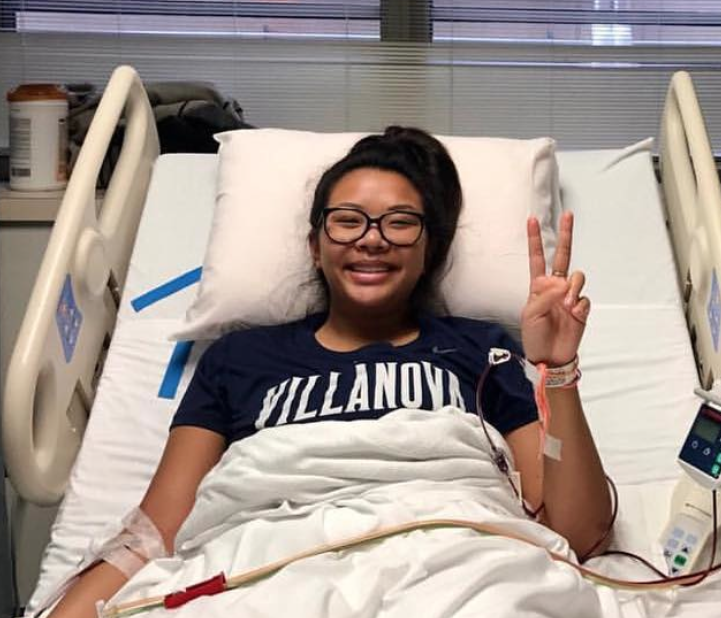Senior “Becomes the Match” to donate bone marrow and saves life
February 14, 2017

On Feb. 2, Naomi Ng ’16 donated peripheral blood stem cells at an outpatient clinic as part of the Be The Match donor program. She was matched after registering for Be The Match through the Andy Talley Bone Marrow Foundation.
“You swab your cheek and you might save someone’s life,” Ng said. “It’s so easy to register to be a donor that you don’t think about the impact.”
Ng was informed of the potential match in the fall of 2016 and completed initial blood work. Having graduated in May with a degree in Environmental Studies, she had just begun working for Amtrak in D.C. as senior service planner. She was not contacted again until mid-December, and completed the non-surgical procedure several weeks later.
The Andy Talley Bone Marrow Foundation, a non-profit created in 2010 by the recently retired head football coach. Talley began promoting awareness about bone marrow donation in 1992 by hosting testing opportunities on campus. In 2008, he partnered with Be The Match to form the “Get in the Game. Save a Life” initiative. The foundation has now enlisted over 78 college football programs to participate in the foundation’s mission, registering young, healthy college students with the Be the Match registry to increase the chances of finding a bone marrow match for patients diagnosed with blood cancer.
Like many University students Ng registered at one of Talley’s on campus testing drives. She swabbed her cheek, filled out the paperwork and doubted that she would ever get a call. “I kind of forget that I had registered for it,” Ng said. “I had hoped obviously, because I wouldn’t have registered if I didn’t want to do it. It’s just such a slim chance.”
The donation of peripheral blood stem cells is one of two methods for collecting the blood-forming cells that recipients need. For five days before the procedure, Ng was given injections of filgrastim to increase the number of stem cells in her blood. On the day of the procedure she was connected to a machine via a needle in one arm and her blood was run through the machine and returned to her body through the other arm.
Although the filgrastim injections were painful, Ng described the procedure as “pretty non-invasive,” saying, “I actually slept through the procedure. When I woke up I was like, that’s it? I can leave now?”
Ng’s match is a 66-year old man, but his age and gender are the only things she knows about him. A year after the procedure, Be The Match will help to facilitate contact between the two if desired by donor and recipient.
“It’s a really emotional experience,” Ng said. “I’ve never met this guy. I don’t know his name. I don’t know anything about him, but I feel like I have an emotional connection to him now. I don’t know yet, but I might have saved his life.”


